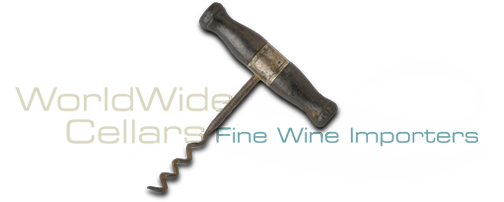Ca’ del Baio
 Ca’ del Baio exudes a sense of youthfulness – probably helped along by Giulio Grasso’s three energetic daughters: Paola, Valentina, and Federica. The azienda itself is not so young – four generations of winegrowers going back to Luigi Grasso, the great-grandfather of the youngest generation. Proud parents, Giulio and his wife Luciana have even more to be proud of, as their modern, 25 hectare estate is producing some very fine Barbaresco and a range of other wines that leave the competition struggling to catch up. The entire range has a sense of verve, freshness, and vitality that can’t fail to impress the taster.
Ca’ del Baio exudes a sense of youthfulness – probably helped along by Giulio Grasso’s three energetic daughters: Paola, Valentina, and Federica. The azienda itself is not so young – four generations of winegrowers going back to Luigi Grasso, the great-grandfather of the youngest generation. Proud parents, Giulio and his wife Luciana have even more to be proud of, as their modern, 25 hectare estate is producing some very fine Barbaresco and a range of other wines that leave the competition struggling to catch up. The entire range has a sense of verve, freshness, and vitality that can’t fail to impress the taster.
Giulio himself was recognized recently as "Viticoltore dell'anno" - Winemaker of the Year - by Italy's famed Gambero Rosso (March, 2016). An incredible achievement for this humble man. They had this to say:
Giulio Grasso – founder of Caʼ del Baio winery – is an authentic grape-grower, a man who lives the rhythms of nature and countryside practically in symbiosis with his vineyards. Althought his productions ranges from red white wines to red of the territory, it his nevertheless his Barbaresco wines from Pora, Asili and Vallegrande crus that most deeply represent him, and above all, his ties to his land. He is transmitting these values to his daughters Paola, Valentina and Federica, who work with him in to the winery.
The family’s home and cantina are situated in Treiso. The cru Barbaresco vineyard holdings are divided among Treiso (Valgrande and Marcarini) and Barbaresco proper (Asili and Pora). Of the 25 or so hectares owned by the family, about 17 are in Treiso and the rest are in Barbaresco. Their production averages 100,000 bottles, half of which is Nebbiolo (Barbaresco, plus Langhe Nebbiolo) and the other half divided among Dolcetto, Barbera, luscious Langhe whites from Chardonnay and other grapes, and Moscato. Calcareous Marl predominates the soils; in some expositions they appear almost as white as snow thanks to all the lime and calcareous material present in the soils.
For more than 20 years the well-respected consultant Beppe Caviola has worked with the family to perfect methods in vineyard and cellar. Farming is sustainable, using the methods known as “agricultura integrata” – farming that is integrated with the environment and uses only minimal treatments, and only when absolutely necessary. Alcoholic fermentation usually starts spontaneously with indigenous yeast, except in rare vintages where the risks are too great – especially in wet vintages where botrytis infection is prevalent. Macerations are in the long-ish range – from 15 to 20 days, depending on the wine and the vintage. Sulfite and sulfur dioxide additions are extremely low – less than half the permitted amount. Elevage is primarily in botti grandi – large oval casks from Slavonian and Austrian oak. There is also some use of 500L tonneaux. ~ Joe Kotnik
Quick Facts
Winery: Azienda Agricola Ca’ del Baio
Region: Piedmont
Locale: Treiso (Barbaresco)
Farming: Uses sustainable practices

